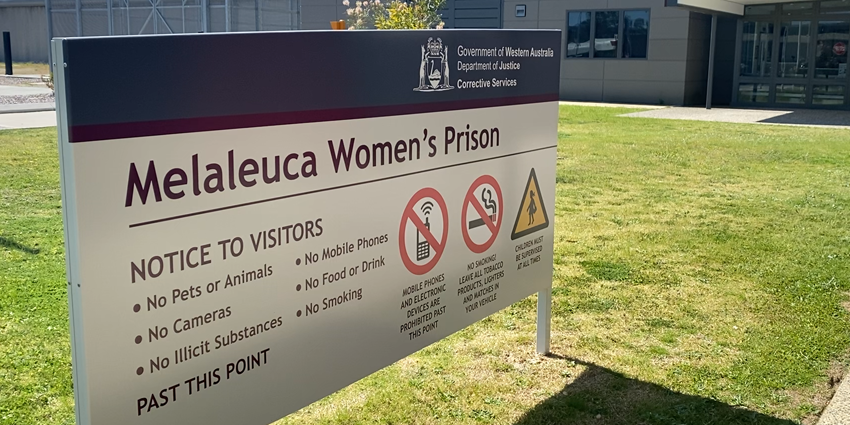
A maximum-security prison, Melaleuca became Western Australia’s primary remand custodial facility for women after it was originally built to allow for a larger male prisoner population at Hakea Prison.
Melaleuca returned to the Department’s management in 2020 after a period of private management.
OICS identified infrastructure-related limitations of the original design and purpose of Melaleuca as well as staffing and other issues at the facility, all of which the Department acknowledges.
Despite the issues it noted, OICS also commended the professionalism of the Melaleuca workforce.
“One very positive aspect of our inspection was the commendable attitude and approach of most staff at all levels,” it said. “The dedication and commitment to ‘make it work’ was evident.”
Like all WA custodial facilities, Melaleuca accommodates prisoners with complex health needs and OICS recognised the efforts of the prison’s health services team.
“Women’s complex health needs were well-managed,” OICS said. “Staff across various disciplines shared information and worked collaboratively to achieve good health outcomes for their patients.”
Department Director General Kylie Maj said the Department was striving to address the infrastructure, staffing and other challenges, including provision of services, outlined in the OICS report on Melaleuca.
“As the Department continues to manage the increased demands of a growing custodial population Statewide, it remains committed to making the enhancements required at Melaleuca,” she said.
“A short-term infrastructure program has been initiated and includes ‘priority items’ for Melaleuca.
“We are also committed to boosting services and supports for the women in Melaleuca’s care.”
Corrective Services Commissioner Brad Royce said Melaleuca’s senior management team and staff worked tirelessly to maintain the good order of the maximum-security prison’s operations.
“The continued safe and secure running of the remand facility while we experience an unprecedented rise in prisoner numbers across the entire custodial estate is a credit to staff at Melaleuca,” he said.
Commissioner Royce said initiatives aimed at addressing the issues OICS identified were underway.
“The bulk-recruitment function for prison officers has recently been restructured under the Corrective Services division to enable a streamlined and co-ordinated effort to recruit and retain staff,” he said.
“There were more entry-level training programs (16) completed this year resulting in an increase in prison officer graduates, with schools also delivered in regional locations to promote greater access.
“We are looking to modernise staffing models for custodial and non-custodial staff at Melaleuca and across the whole prison system.
“This will help Corrective Services deliver better services, increase safety and security, and anticipate current and future demands for managing the custodial population.”
The Commissioner said planning was also underway to increase the number of clinical staff and identify the long-term infrastructure needs of WA’s custodial estate.


